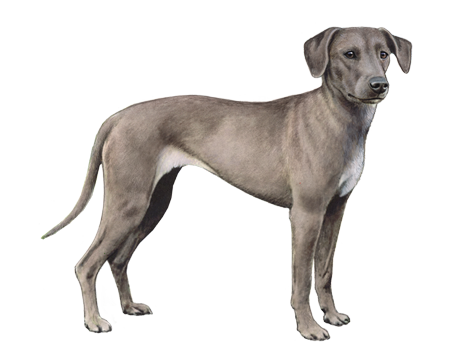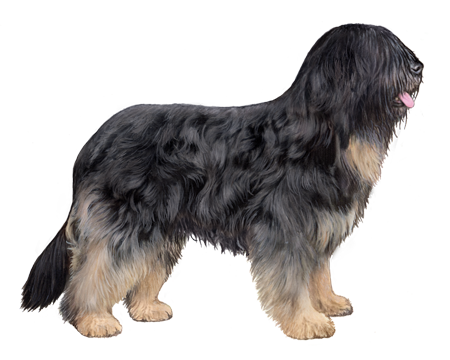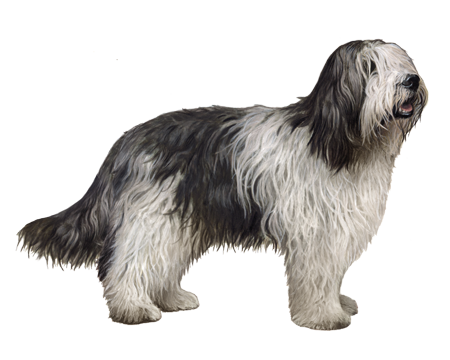
Polish Tatra Sheepdog
Underneath the Polish Tatra Sheepdog's white, fluffy coat is a calm, quiet, independent spirit. These alert, intelligent dogs are hard workers, natural guardians, and gentle giants.
Interested in discovering if your dog is a Polish Tatra Sheepdog?
Check out Wisdom Panel's DNA tests.

Polish Tatra Sheepdog Traits
General Appearance
The Tatra is a giant breed that gives the impression of power and stamina. These heavy-boned dogs have compact, muscular bodies and snow-white coats.
Coat and Coloring
Tatras have thick topcoats (that are straight or slightly wavy) and dense undercoats—both of which enable them to withstand harsh conditions. The hair on the breed's head, muzzle, and legs is short. The rest of the body has longer hair, including a thick ruff around the neck and profuse hair on the thighs and tail. Polish Tatra Sheepdogs are typically pure white.
Distinctive Physical Traits
The Tatra's other notable traits include a slightly domed skull, pronounced muzzle, and dark brown, expressive eyes. These dogs have long, massive bodies and tails that, when hanging, reach to the hock.
Polish Tatra Sheepdog Temperament
Though they are working dogs through and through, Tatras also make good family dogs and are gentle and reliable with children. However, due to their massive size, these pups still require supervision when around kids. Tatras usually get along well with other household pets, too. But they may be wary of strangers.
Typical of livestock guardians, Tatras are naturally protective. Though calm and intelligent, they require socialization throughout their lives to overcome their independent nature and strong guarding instincts.


Polish Tatra Sheepdog History
The Polish Tatra Sheepdog originated from the mountains of Poland several thousand years ago. Also known as the Owczarek Podhalanski or Polish Mountain Sheepdog, the breed likely descends from the Mastiff.
Tatras were popular dual-purpose working dogs, bred to herd and guard livestock on a minimal diet—in both cold, harsh temperatures and intense, dry heat. Later, these massive dogs pulled carts and worked as military, police, and guide dogs.
When Poland fell under communist rule after World War II, Tatras faced uncertain times and even approached extinction. But the Fédération Cynologique Internationale (FCI) remained steadfast in its preservation efforts. By the 1960s, a campaign encouraged the breeding of these beautiful and hard-working dogs.
By the 1980s, the breed arrived in America and Canada. The United Kennel Club recognized the Tatra in 1995.
Polish Tatra Sheepdog Care
Nutrition
Tatras need high-quality food appropriate for their life stage (e.g., puppy, adult, senior). Because of their size, they also benefit from diets formulated for large breeds—particularly when they are puppies. This prevents them from growing too fast and developing skeletal problems.
Grooming
Despite their thick, fluffy coats, Tatras have manageable grooming needs. Their coats are self-cleaning and rarely need washing. (Good news to anyone who has tried to give a bath to a 50+ kg dog!) This breed does, however, require weekly brushing to remove loose hair. And in the Spring—when Tatras blow their coats—you'll want to brush daily.
In addition to brushing your dog's coat, be sure to keep their nails trimmed and ears cleaned. A dental hygiene routine, including at-home care and professional cleanings, is also essential for your pup's overall health.
Exercise
As working dogs with a lot of energy and stamina, Tatras need lots of exercise. Long daily walks and a fenced yard to run around in will help them be calm, low-key pets inside the house.
Training
Polish Tatra Sheepdogs are intelligent. But they also have a strong will and independent nature. So, a consistent and firm (yet gentle) approach is the best way to train these hard-working pups.
Breed Group
Herding
The herding group is a diverse category. These highly intelligent breeds were developed to guard and control the movement of livestock.























































